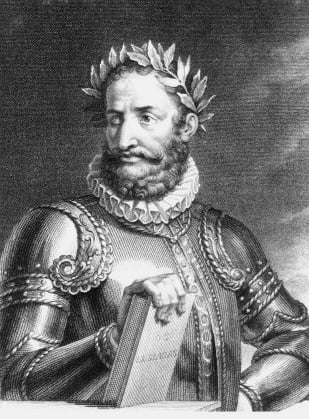Every country has its storyteller. Shakespeare put England on a global stage, Italy’s Dante took us to both Heaven and Hell, and Homer breathed life into ancient Greece. But among this global pantheon of writers, there is one figure who remains somewhat elusive outside of his homeland – Luís de Camões. Revered for his poetic brilliance, adventurous life, and timeless works, Camões captures the Portuguese spirit in all its facets – from love and loss to exploration and honor.
Despite his lasting influence, the life of Camões was far from easy or prosperous. It was marked by war, adventure, love, and loss. He gave voice to Portugal’s Golden Age and, through his magnum opus, Os Lusíadas, immortalized the age of exploration and the spirit of his people. Join me as we journey into the extraordinary life of Luís de Camões through these eight fascinating facts.
1. He Was Portugal’s Answer to Shakespeare and Homer
To understand Camões, one must first understand Os Lusíadas – the national epic of Portugal and his crowning literary achievement. Written in 1572, Os Lusíadas (translated as The Lusiads) is an epic poem that celebrates the Portuguese Age of Discovery, particularly Vasco da Gama’s pioneering sea voyage to India. The work reflects Portugal’s pride, ambitions, and sense of identity during its Golden Age, encapsulating the hopes, dreams, and aspirations of an entire nation.
Much like The Odyssey or The Aeneid, Camões’s work combines history with myth, interweaving tales of gods and heroes. Through divine interventions and mortal struggles, Os Lusíadas tells the story of Portugal’s explorers, immortalizing their courage and persistence against adversity. Written in ten cantos, the poem spans nearly 9,000 lines and follows the heroic journey of Vasco da Gama, framing him as a Portuguese Odysseus who must overcome supernatural obstacles to reach his destination. Camões’s work is a lyrical love letter to Portugal’s explorers, capturing the dangers, wonders, and sacrifices of their voyages.
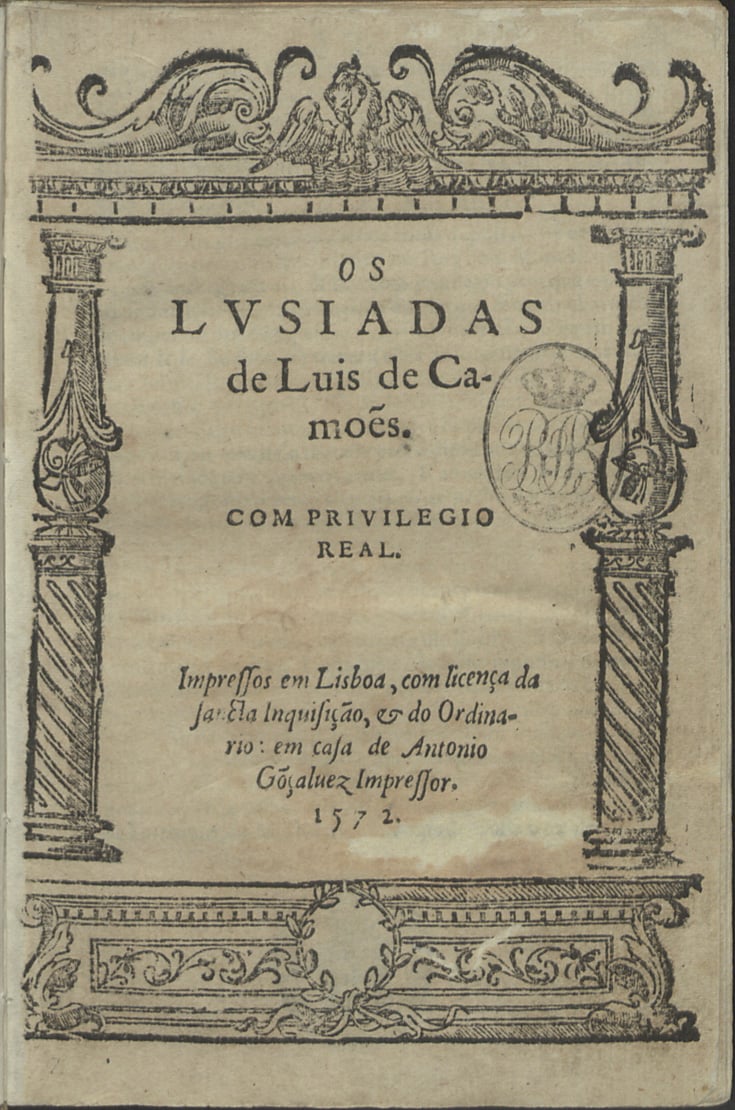
Os Lusíadas is far more than an epic adventure, though. It is also an introspective work, exploring the human cost of exploration and conquest. Camões was one of the first writers to acknowledge the darker side of empire. He wrote about the glory but also the hardship and brutality faced by those who ventured into the unknown. With this masterpiece, Camões cemented his place as one of the greatest poets of the Western literary canon.
2. Camões Lost Sight in One Eye During Battle
If Camões’s life were a novel, it would undoubtedly include a chapter on bravery and valor. Before he became Portugal’s greatest poet, he served as a soldier and fought for his country in North Africa, a place of constant conflict between Portuguese and Moorish forces. During a naval battle in the Strait of Gibraltar, Camões lost sight in his right eye, a wound that became a part of his identity. His eye would eventually become symbolic of his indomitable spirit and adventurous character, a physical scar that embodied the inner resilience he needed to face the struggles ahead.
Camões did not see his injury as a setback; instead, it became a badge of honor. In a time when Portugal was expanding its empire and soldiers were seen as noble heroes, Camões’s wound only added to his legendary persona. To many, he represented the ideal Portuguese hero: a fearless poet-warrior with a poetic soul and a scarred face that told the tale of his bravery.
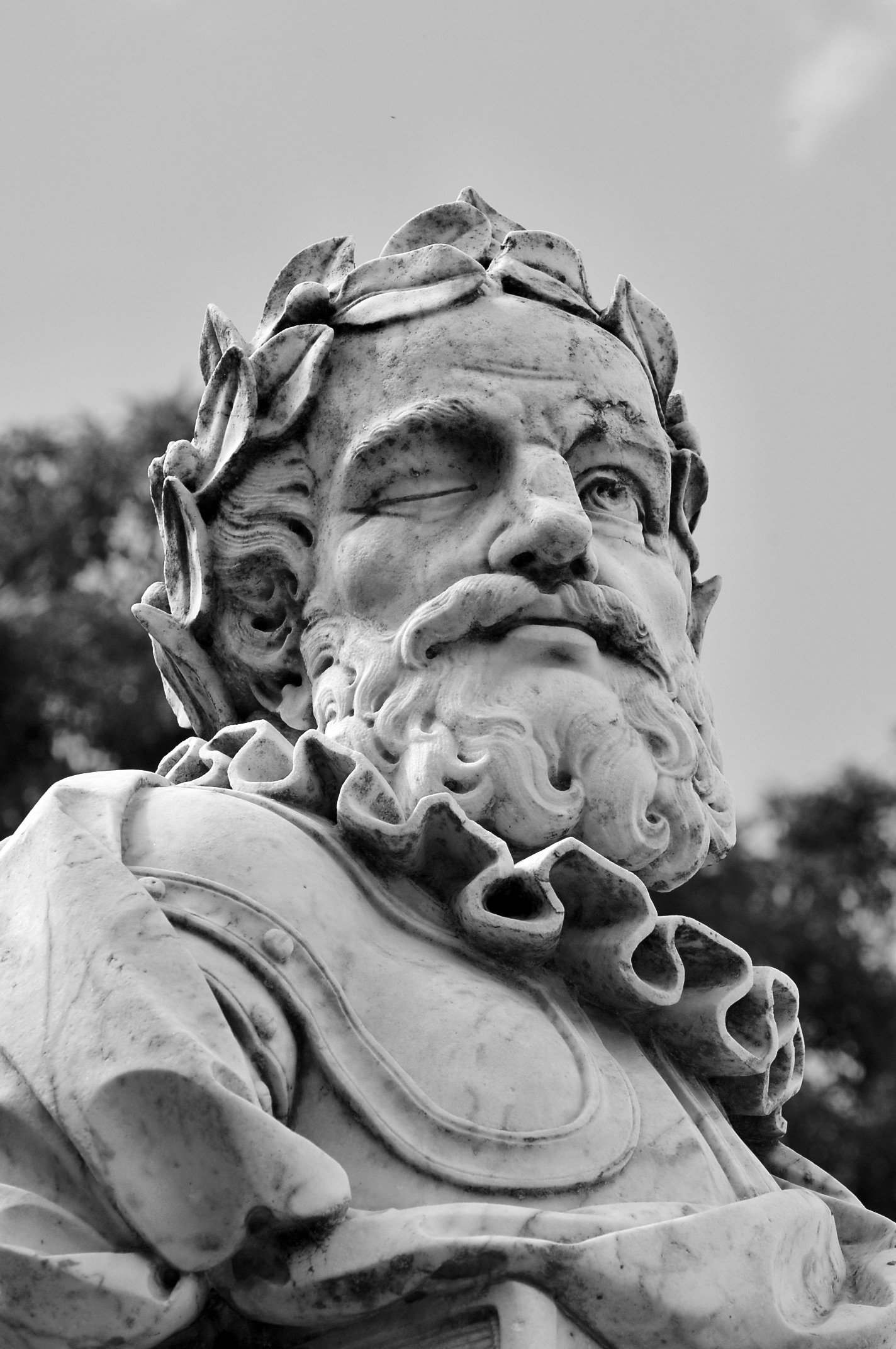
3. He Had a Passionate and Scandalous Love Life
Camões lived in a time of rigid class structures and social expectations, but that didn’t stop him from pursuing his heart’s desires. As a young man, he fell deeply in love with Catarina de Ataíde, a noblewoman far above his station. His passion for her was as fervent as it was forbidden, and the affair was considered scandalous – especially since Camões was a commoner. Many of his most touching sonnets are thought to have been inspired by Catarina, a muse who filled his verse with longing, heartbreak, and beauty.
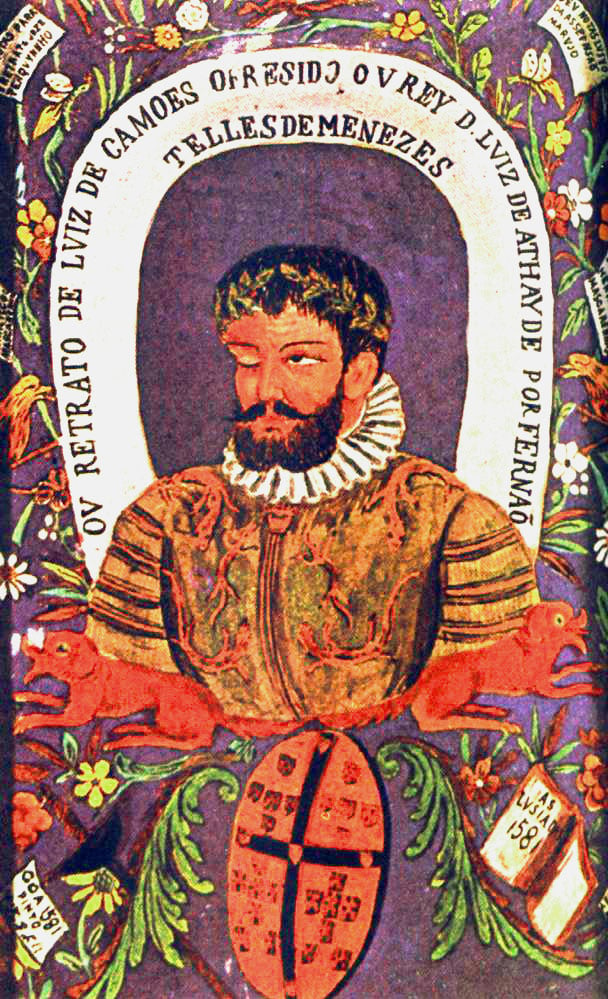
Camões’s love poetry is as powerful as his epic works. His sonnets, written in the Petrarchan style, delve into the nuances of love: its beauty, pain, and the intense longing it creates. These poems have resonated across centuries and remain beloved by Portuguese readers, who see in Camões’s work a reflection of their own romantic ideals.
Despite his romantic exploits, Camões’s personal life was marked by loneliness. Throughout his life, he struggled with relationships and spent much of his later years alone. His poetry reflects this isolation, capturing the bittersweet tension between love’s ideal and its sometimes painful reality.
4. He Survived a Shipwreck and Saved His Manuscript
Camões’s life was filled with hardships, but his dedication to his craft was unwavering. While returning to Portugal from the East Indies in 1569, the ship he was on sank off the coast of what is now Vietnam. Camões managed to swim to shore, clutching the only thing he couldn’t bear to lose – his manuscript of Os Lusíadas. Legend has it that he held the precious pages above his head as he swam, determined to preserve his life’s work.
This image of Camões, drenched and exhausted but still holding onto his manuscript, has become emblematic of his spirit. It was an act of loyalty to his art that few could replicate, and it has inspired generations of Portuguese to hold onto their passions with the same fierce devotion. This tale of the shipwreck serves as a metaphor for the poet’s life: no matter how turbulent his circumstances, he never abandoned his poetic calling.
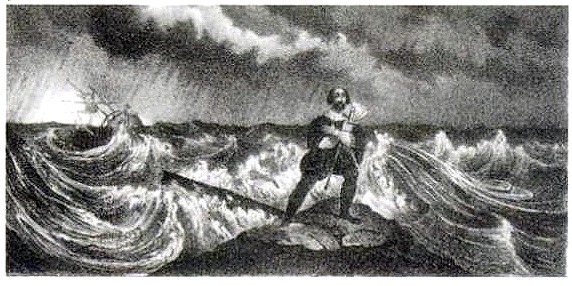
5. He Endured Financial Hardship Throughout His Life
Camões’s financial struggles are legendary, and they add a layer of tragedy to his story. Despite his immense talent, he never achieved wealth or stability. After returning to Portugal with the hopes of securing royal patronage, he was granted a modest pension by King Sebastião, but it was barely enough to sustain him.
Living a life of near poverty, Camões spent his final years in a small, rented room in Lisbon, battling illness and financial difficulties. His struggle with poverty has become part of the Camões legend, a reminder of the sacrifices he made for his art. When he died in 1580, he was buried in a simple grave, with little ceremony or fanfare.
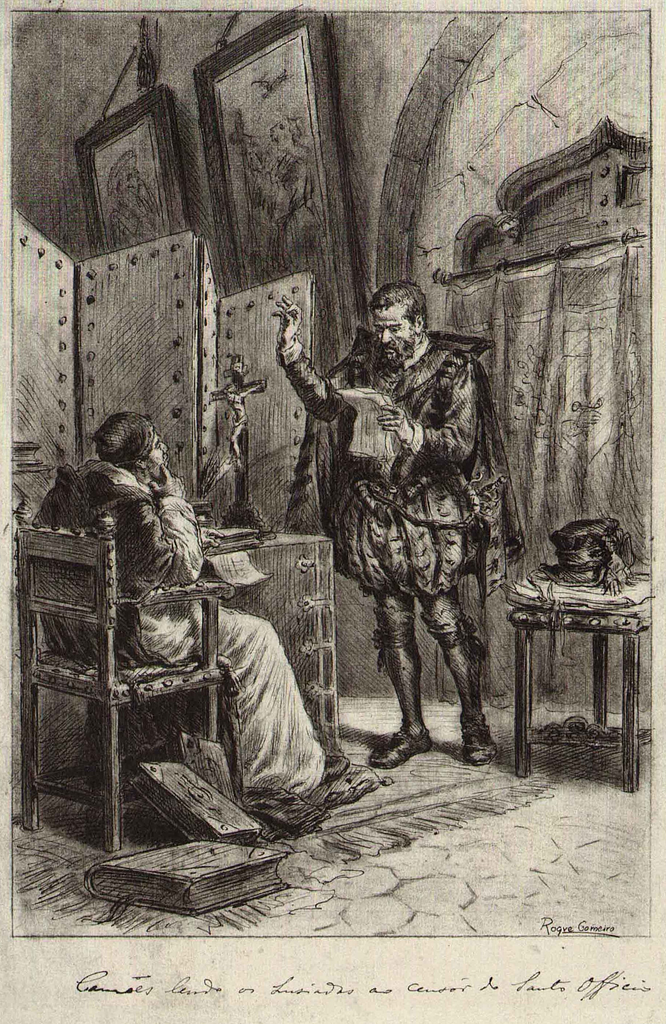
6. He Wrote Some of the Most Powerful Sonnets in the Portuguese Language
Camões is best known for Os Lusíadas, but his lyrical poetry is equally extraordinary. His sonnets are among the most cherished works in Portuguese literature, exploring themes of love, fate, and existential reflection. His sonnets captured the complexity of human emotions with a sensitivity that is as relevant today as it was in the 16th century.
Camões’s sonnets differ from those of other poets in that they carry a deep, almost philosophical introspection. While his contemporaries wrote about love in idealized forms, Camões delved into the pain and complexity of real relationships. His poems are often tinged with melancholy and reflect a worldview shaped by his own experiences of hardship and loss.
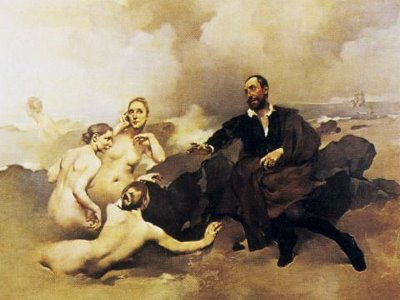
7. He Wrote During Portugal’s Golden Age of Exploration and Empire
Camões lived and wrote during the Age of Discovery, a period of immense exploration and expansion for Portugal. This was a time when Portuguese sailors were navigating uncharted waters, establishing trade routes, and discovering new lands. The Portuguese empire was at its height, and Camões’s poetry reflects both the pride and the complexities of this era.
In Os Lusíadas, he portrays Vasco da Gama and other explorers as heroic figures, but he also addresses the darker side of conquest. While he celebrates Portugal’s achievements, he does not shy away from showing the sacrifices made by the explorers and the costs of empire-building. Camões’s work stands as both a celebration and a critique of Portugal’s imperial ambitions and captures the dualities of an age marked by both triumph and tragedy.
Camões’s willingness to question the consequences of Portugal’s imperial pursuits was revolutionary for his time. Through his poetry, he provided a nuanced perspective on the Age of Exploration, one that acknowledged the glories of empire while also exploring its moral ambiguities.
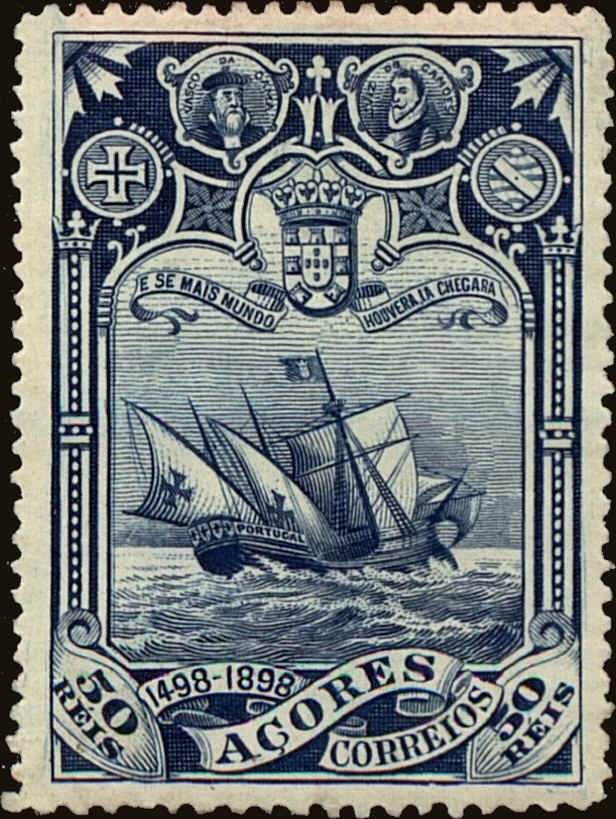
8. Camões Is a National Hero and Cultural Icon
Today, Camões is celebrated not only as a literary figure but as a national hero. His legacy is so deeply woven into Portuguese identity that his death anniversary, June 10, is commemorated as “Dia de Camões,” a national holiday that celebrates Portuguese language and culture. Statues of Camões can be found throughout Portugal, and his image once graced the country’s currency. His work continues to be a source of national pride, and his spirit lives on in the Portuguese language itself.
Camões is a symbol of Portugal’s resilience, creativity, and courage. His work has inspired countless generations of Portuguese people, reminding them of their rich history and the values that define them.
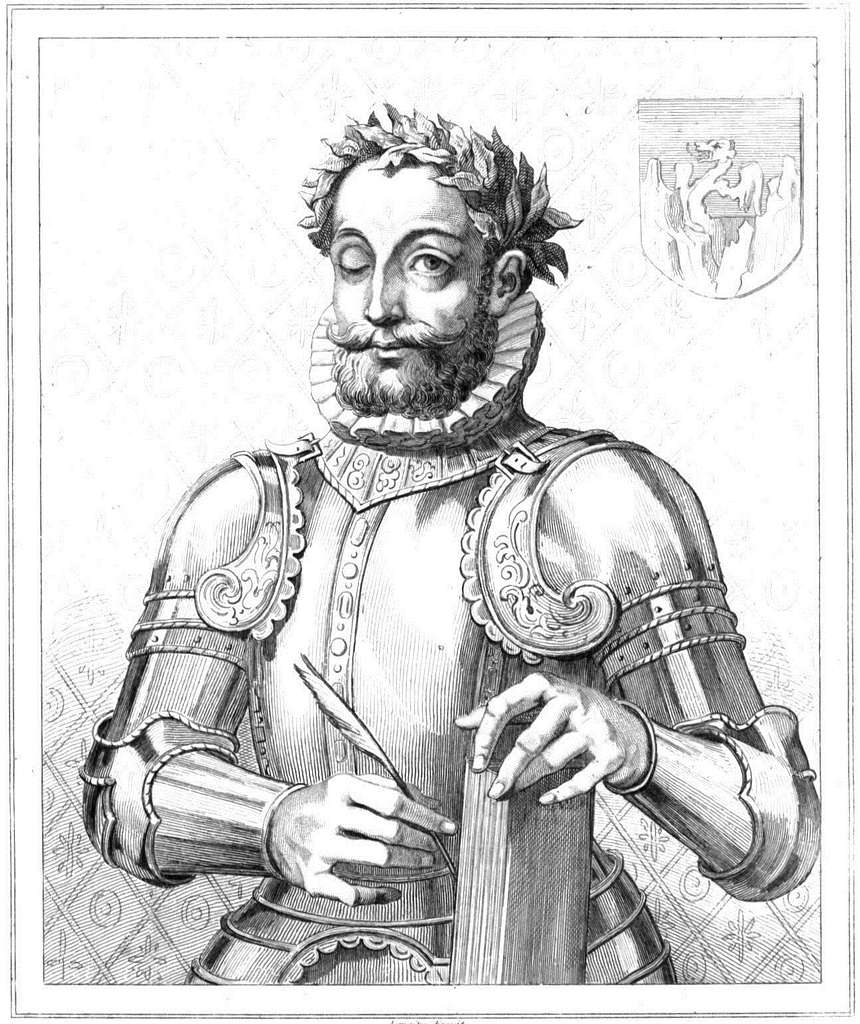
Legacy Beyond Portugal
Camões’s influence extends beyond Portugal’s borders. His works have been translated into numerous languages, and his poetry has influenced writers, artists, and thinkers around the world. Os Lusíadas is studied as both a literary masterpiece and a historical document that offers insight into a pivotal time in world history.
In Brazil, Angola, and other Portuguese-speaking countries, Camões is revered as a cultural icon. His poems are taught in schools, his life is celebrated in folklore, and his words are recited at gatherings and festivals. The reach of his work is a testament to its universal appeal and timeless wisdom.
Final Thoughts
Luís de Camões’s life was as epic as his poetry. A true Renaissance man, he lived through love and war, faced triumph and tragedy, and poured his soul into his work. His legacy continues to shape Portuguese identity and offers a glimpse into the values, struggles, and dreams of a people who have endured through the ages. So, whether you’re reading Os Lusíadas or one of his intimate sonnets, you’re stepping into the mind of a poet who captured the Portuguese soul – a soul defined by love, resilience, and an unbreakable spirit.

